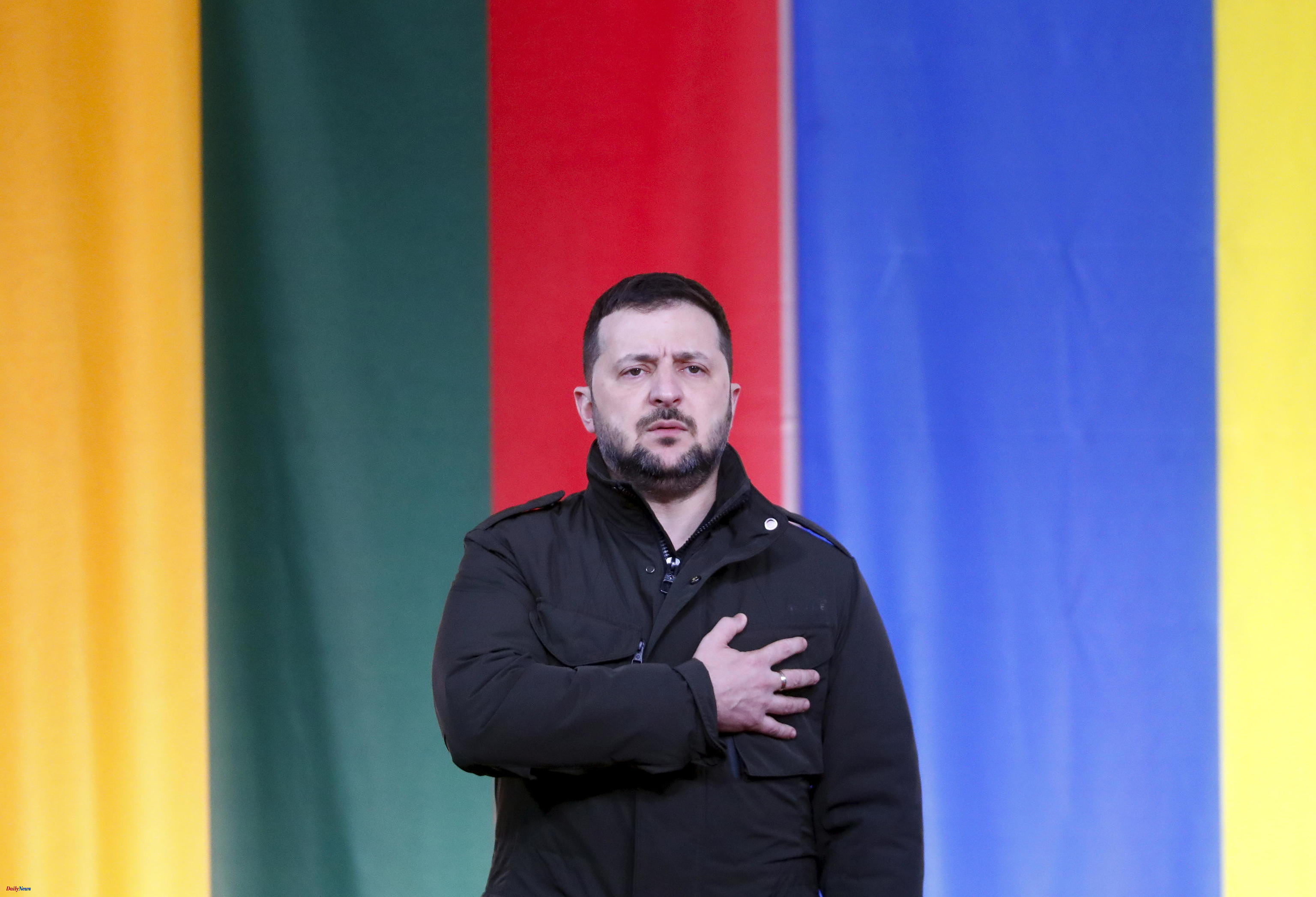Ukraine urgently needs and demands more anti-aircraft defenses to minimize the impact of Russian bombing. And NATO assures that "they will continue to provide important military, economic and humanitarian assistance" and will continue to strengthen anti-aircraft capabilities. Does this mean that kyiv has got its way and will now have more resources? Yes, but no or no, but yes. Or, in any case, something with many buts and nuances. The members of the Alliance met in an extraordinary manner today in the so-called NATO-Ukraine Council at ambassadorial level. A special format recently created so that exchanges are done face to face, peer to peer, even if the country is not a member. And although there are good words, promises and defined plans, the concrete things that Volodimir Zelensky has asked for these days are not on the table. Not at least as they aspired. The news would have been a change of course or strategy, but what they have not approved are concrete and immediate commitments.
The recent multiplication of Russian air strikes seeks to exhaust kyiv's defensive resources. That is why Foreign Minister Dimitro Kuleba has asked all Western allies to send spare parts regularly: "Ensuring the regular supply of missiles for the Patriots, IRIS-T, Nasams and other systems is a top priority that must be completed today , not tomorrow," he said this week. NATO called the meeting in view of the use of new weapons, some of which came from North Korea, and in view of what appears to be a possible flow of ammunition also from Tehran.
"Allies strongly condemn Russian missile and drone attacks on Ukrainian civilians, including with weapons from North Korea and Iran. For the second year in a row, Putin is trying to wear down Ukraine with massive attacks, but will not succeed. Russia's campaign of cruelty "Russia is only strengthening Ukraine's resolve. As Moscow intensifies its attacks on cities and civilians, NATO is strengthening Ukraine's air defenses. We will continue to support the brave Ukrainians as they fight the war of aggression," he said Wednesday. the secretary general, Jens Stoltenberg, at the conclusion of the meeting.
The allies have already "delivered a wide range of anti-aircraft systems to Ukraine and today reaffirmed their commitment to further strengthen Ukraine's defenses. A few days ago the joint purchase of 1,000 Patriot missiles was announced to replenish reserves. Germany has recently delivered systems of Patriot and Skynex air defenses and additional missiles for IRIS-T air defenses to Ukraine, and the United Kingdom is to provide around 200 missiles. "Today, the allies made clear that they will continue to provide Ukraine with significant military, economic and humanitarian assistance , and many allies outlined plans to provide billions of euros in additional capabilities in 2024," the Alliance says.
THE EU LOOKS FOR SHORTCUTS
On the other hand, Coreper, the ambassadors of the 27 to the EU, gave a partial negotiating mandate to the Belgian Presidency on Wednesday morning on two very important issues: the STEP platform and the mechanism that is being designed to be able to channel financial aid of up to 50 billion euros in the coming years for Ukraine.
Partial means, diplomatic sources explain, that the general framework of the instrument has been agreed upon by the member states, but the figures and some modalities are left for the leaders' decision, which is expected on February 1. At the last summit in 2023, the 27 gave political approval to begin the accession negotiations for Ukraine and Moldova, but they could not do the same with the review of the Community Budget, which includes that 50 billion mechanism. And all because of the Hungarian veto. The next event is the extraordinary summit called by the president of the European Council, Charles Michel, in three weeks. But to gain time, the ambassadors have given permission to Belgian diplomats and technicians to advance as much ground as possible and start preliminary talks with the European Parliament to approve this legislation as soon as possible, if the green light is achieved at the highest level.
These two instruments (the Strategic Technologies Platform for Europe will also allow existing financing to be directed towards technological sectors considered priorities for the Union) will form part of the review package of the Financial Framework, the EU Budget for the period 2021-2027. With these provisional mandates, the Presidency can start interinstitutional discussions with the European Parliament, with the aim of proceeding as quickly as possible when an agreement is reached at leadership level.
The urgency is real because Ukraine is running out of funds. If Hungary did not lift its veto, a formula of the same amount could be used, but at 26, with contributions from the others for both non-refundable transfers and loans, but it is slower, more complicated and cumbersome. Everyone prefers to use the Budget, which has everything already well established, but a Plan B is taking shape. What Orban, in fact, considers Plan A, as he repeats every week.












